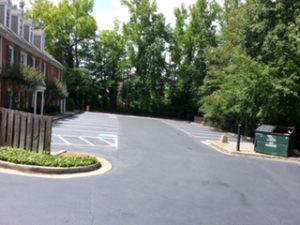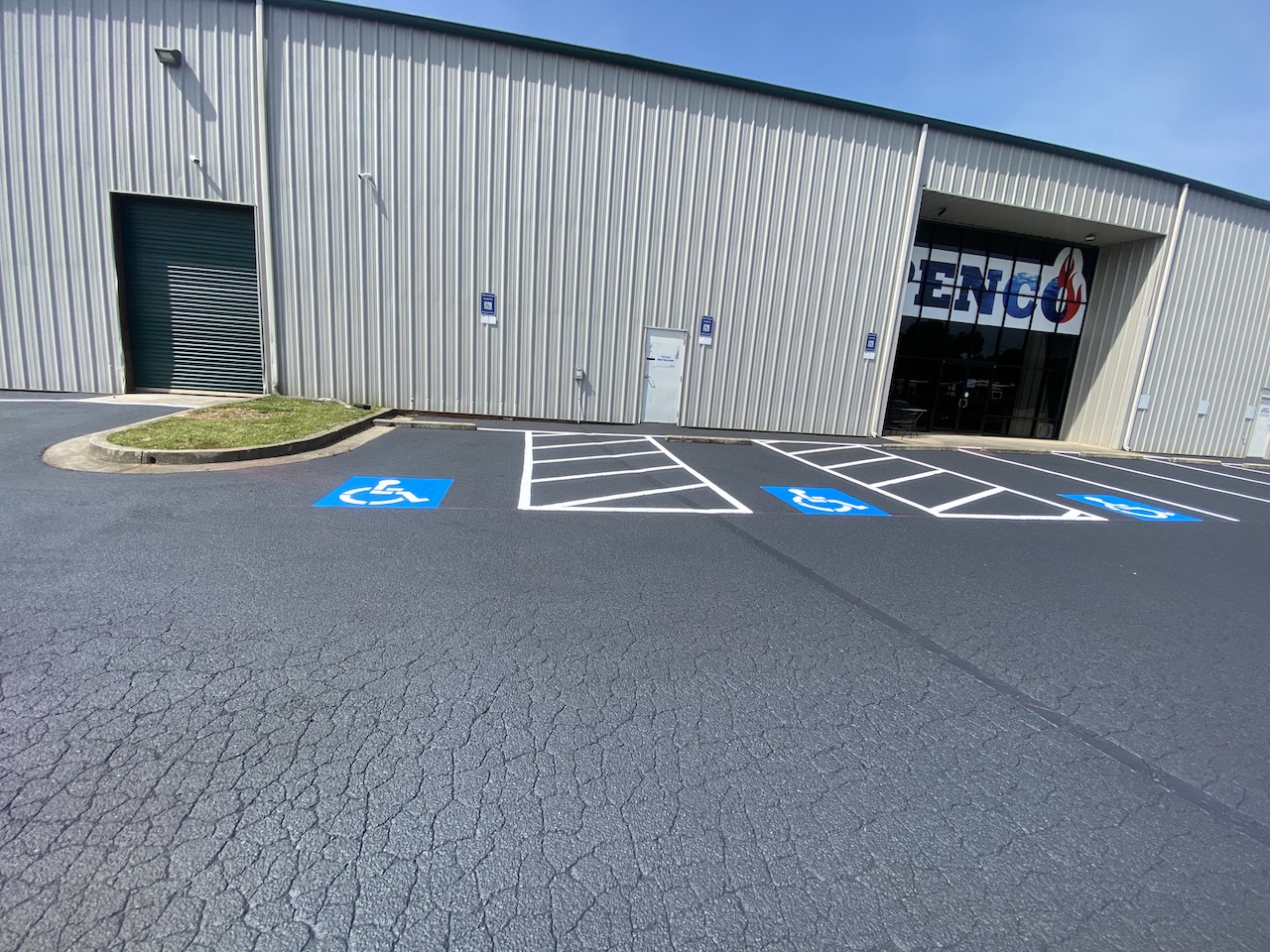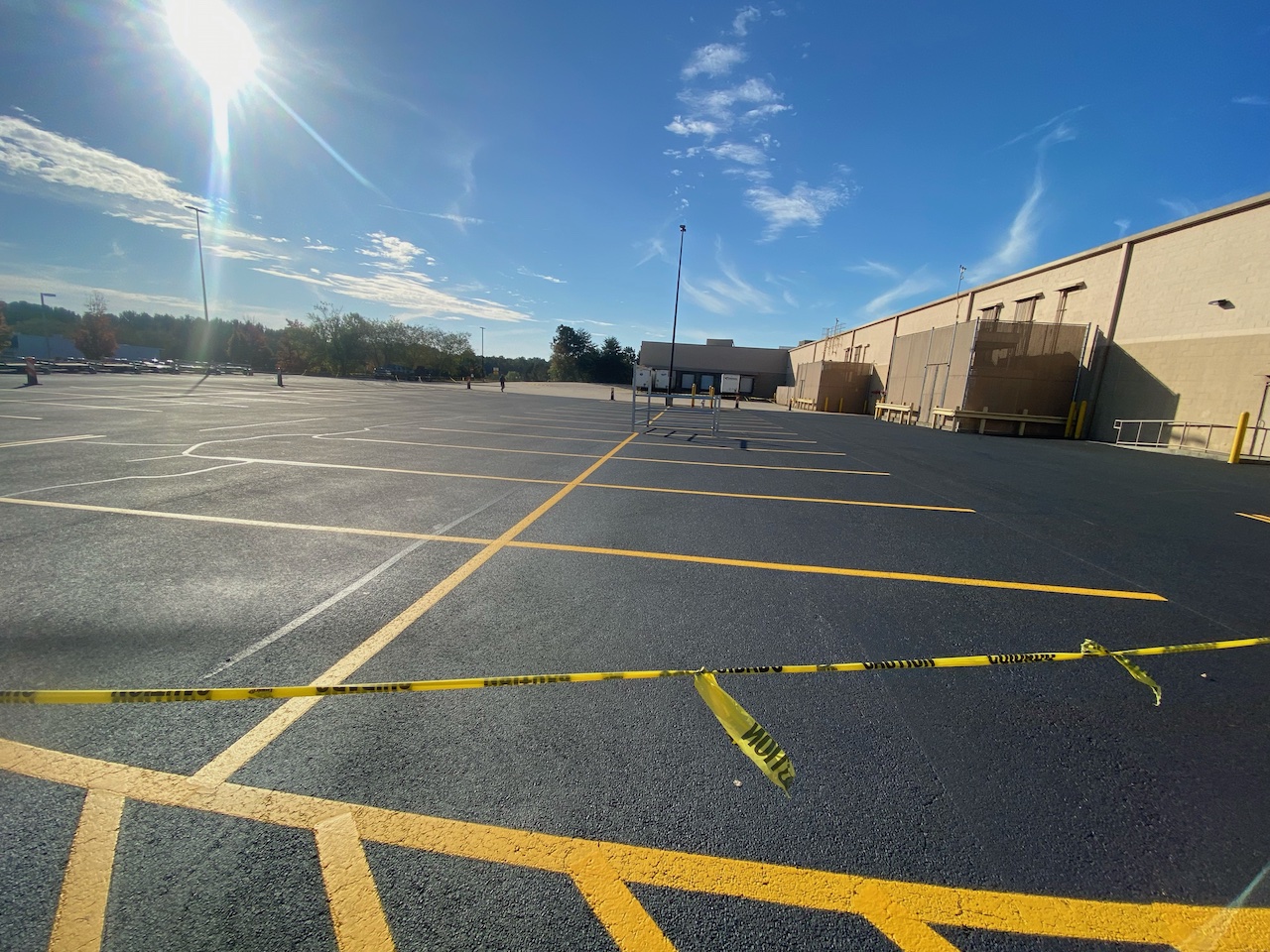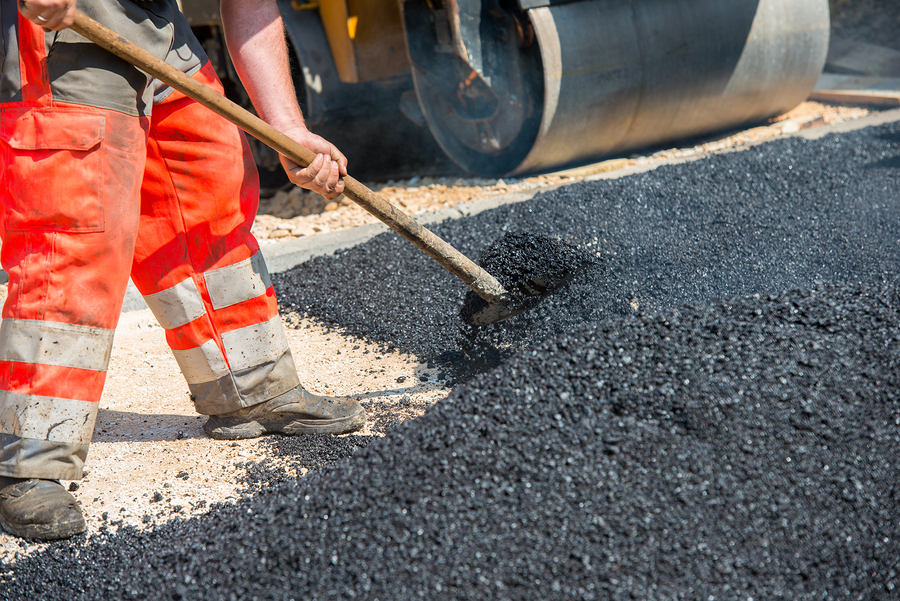
How Do the Atlanta Seasons Affect Your Asphalt?
How Does Cold Weather Affect Asphalt Pavement?
Winter is a challenging season for asphalt pavement. Although the winters in Atlanta are generally mild, on average, temperatures drop below freezing 36 nights every year. However, temperatures rarely stay below freezing for prolonged periods, which means that Atlanta could potentially experience as many as 36 freeze/thaw cycles annually. Furthermore, Atlanta averages 30 days of rainy weather and more than 14 inches of precipitation every winter. The combination of rain and freezing temperatures can leave your pavement peppered with potholes, cracks and patches of alligatored asphalt.
If you neglect your asphalt repairs, any cracks that are open to the weather will fill with water. In most cases, the water will leak beneath the pavement and infiltrate the supporting foundation. In its liquid state, the water will pluck material from the foundation and wash it away, weakening the foundation. Once the water freezes, however, the damage is exacerbated. When water freezes, it expands. The ice exerts pressure on the foundation as well as the pavement. When the ice thaws, voids are left between the pavement and the foundation. The pavement subsides in these areas, and potholes and alligator cracking can occur. Each new freeze/thaw cycle causes more damage. Even if the water does not reach the foundation, if it freezes inside the cracks, the cracks will become wider, longer and deeper.
How Does Hot Weather Affect Asphalt Pavement?
Winter may be the most dangerous month for asphalt pavement, but the summers in the Atlanta area are in second place. Because asphalt pavement has a dark color, it absorbs heat very well. When the air temperature reaches or exceeds 90 degrees Fahrenheit — which happens an average of 35 days a year in Atlanta — the temperature of the pavement can be as much as 150 degrees Fahrenheit. This is potentially hot enough to allow soft spots to develop in asphalt pavement. Vehicles passing over these soft spots can crack the pavement or remove chunks of material.
Your pavement is also exposed to higher levels of ultraviolet radiation during the summer months. UV rays rob the asphalt binder of moisture, so the pavement can quickly become dry and brittle, increasing the chances that normal traffic will hasten the pavement’s deterioration. Furthermore, UV rays fade the color of your pavement. Asphalt sealcoating can bring back the color, but it also helps your pavement retain its moisture.
What Are Some Strategies to Protect Asphalt Pavement?
It is impossible to protect every pavement against every type of potential damage. However, if you want to give your pavement the best protection possible, the key is to be proactive about your asphalt maintenance.
1. Have cracks professionally repaired quickly. Ideally, you should have a credible contractor inspect your pavement and repair any cracks every spring and every fall. If that is impossible, at least have cracks repaired in the fall. Any new cracks that are unusually wide, expanding rapidly or uncharacteristically deep should be addressed immediately.
2. In addition to blocking UV rays, sealcoating provides a tough shell over the top of your pavement. This barrier can help prevent the damage that vehicles can do when the pavement is hot. Since sealcoating is not permanent, you should have new sealant applied at the intervals recommended by your contractor.
3. Make sure that your pavement drains properly. Grates and gutters should carry away the runoff without impediment. Low spots can usually be corrected easily and economically to prevent surface pooling.
For the quality asphalt repairs, parking lot striping and sealcoating Atlanta customers need, trust us! MH Greeson offers a full range of asphalt maintenance services for everything from parking lots to tennis courts. We are known for our reasonable prices, superior workmanship and exceptional customer service. We offer free estimates, so call 770-335-2983 or complete the online form to request a quote.




